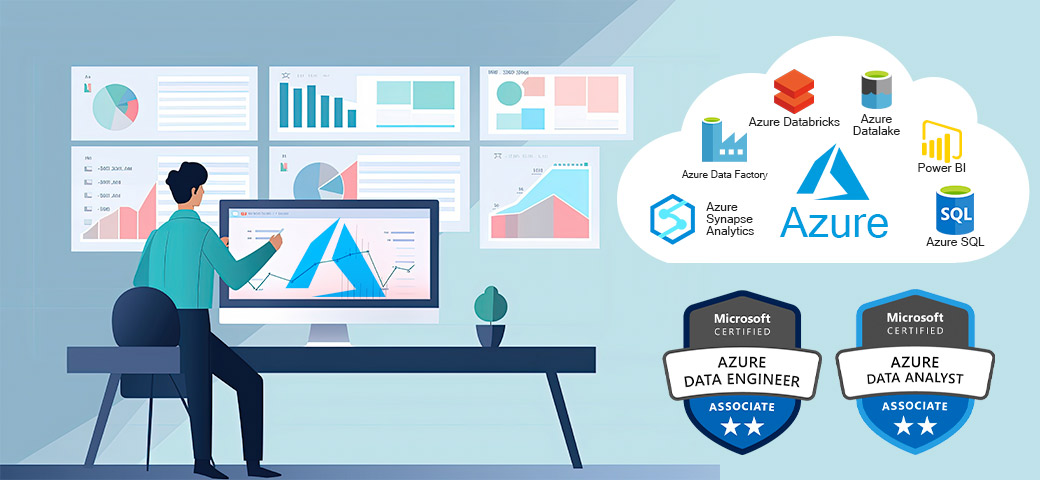Azure Data Engineer With Microsoft Fabric & Data Analytics
Master essential tools to become a high-demand Full-Stack Azure Data Professional. Prepare for the DP-203 Exam with hands-on projects in data storage, processing, and security.

Step into the future of data engineering with HAC’s comprehensive Azure Data Engineer Certification course, now updated to include Microsoft Fabric and cutting-edge Data Analytics practices. Designed by top industry experts, this course prepares you for the Microsoft Azure Data Engineering Exam: DP-203, equipping you with the skills to build scalable data storage solutions, design advanced data pipelines, and implement robust data security strategies.
Explore real-world industry use cases, tackle hands-on assignments, and experience immersive simulations that mirror today’s data challenges. With deep dives into Microsoft Fabric’s unified analytics capabilities and powerful integration tools, you’ll gain a competitive edge in the evolving data landscape.
Ignite your data career with HAC. Enroll today and embark on a transformative learning journey!
Choose HAC's Microsoft Data Engineering Certification Course for mastering Azure data pipelines and stores. With expert instructors and practical learning, troubleshoot and optimize with ease. Elevate your career now!
Hurry up and join our Microsoft Azure Data Engineer Certification Course today to propel your career to greater heights.
Our Azure Data Engineer Certification Course is crafted to industry standards, aiming to equip learners with the skills to design, implement, and uphold secure and compliant data processing pipelines utilizing Azure data services and frameworks. The course prepares candidates for the Azure Data Engineer Exam, assessing proficiency in integrating, transforming, and consolidating data from diverse sources.
|
|
|
|
|
|
|
|
|
|